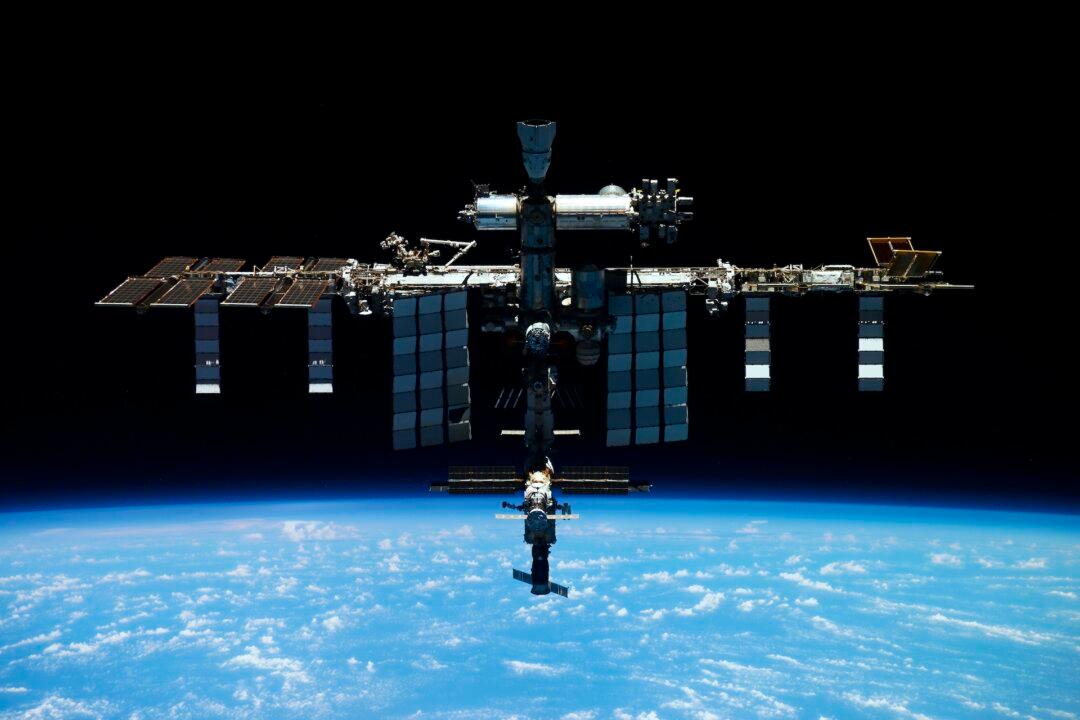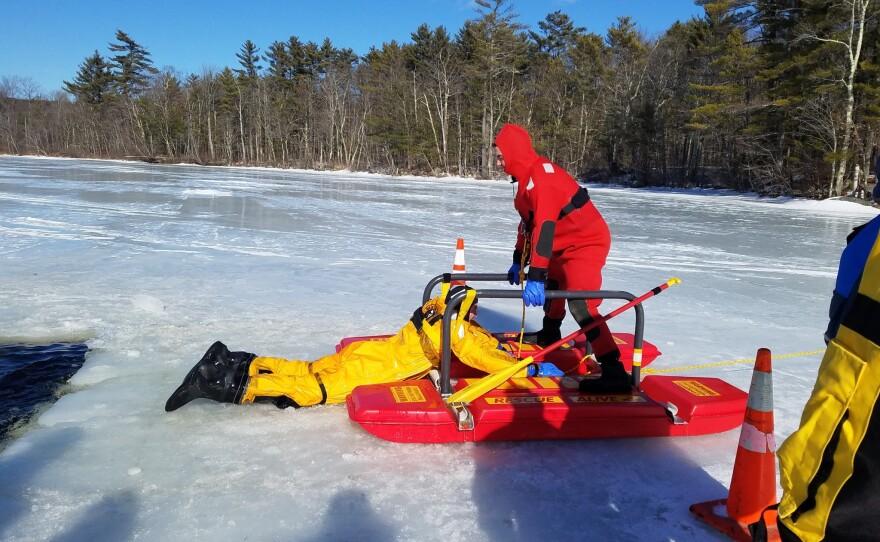An uncrewed Russian cargo spacecraft docked at the International Space Station on Saturday has leaked coolant, but the incident does not pose any danger to the station’s crew, according to Russia’s space agency and NASA.
Engineers at the Russian Mission Control Center outside Moscow first detected depressurization inside the Progress MS-21 cargo ship’s coolant loop, Roscosmos said.




